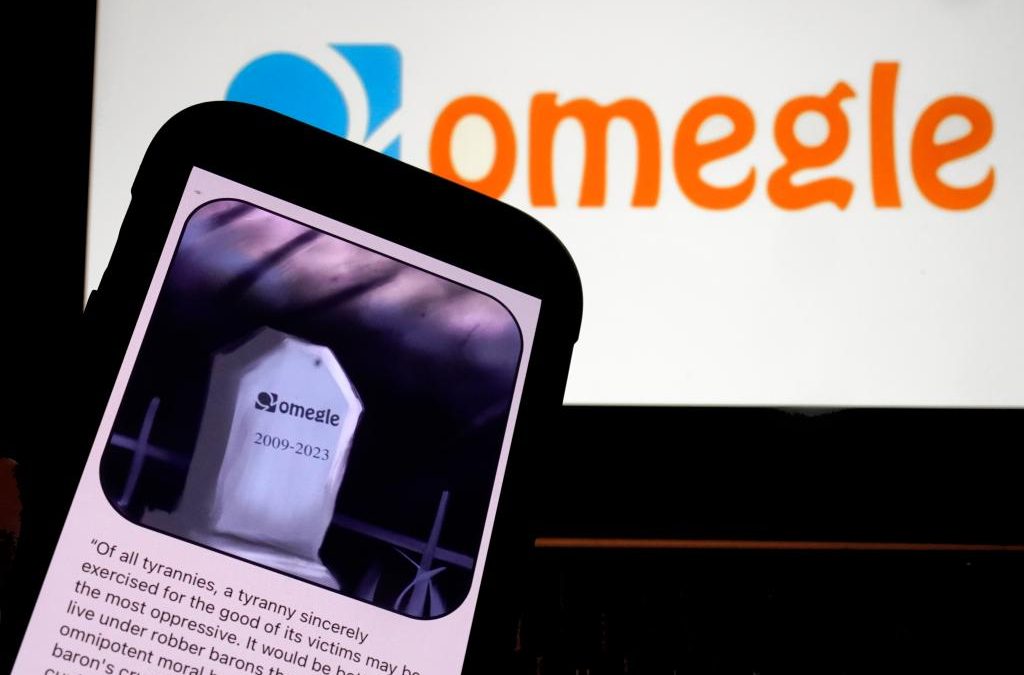Notorious video chat site Omegle — which was launched to link like-minded strangers but morphed into a cesspool for child predators — was shut down Thursday.
Founded in 2009 by a then 18-year-old Leif K-Brooks, the site has faced multiple allegations over the years of being a breeding ground for child pornography and sexual abuse of minors.
The decision to pull the plug comes a week after Omegle settled a $22 million lawsuit filed by the parents of an 11-year-old girl who was randomly matched with a since-convicted Canadian pedophile, according to the CBC.
Terms of the settlement not disclosed.
“Operating Omegle is no longer sustainable, financially nor psychologically,” K-Brooks wrote in a lengthy statement about his decision to shutter the site.
“Frankly, I don’t want to have a heart attack in my 30s.”
K-Brooks, now 32 went on to admit: “There can be no honest accounting of Omegle without acknowledging that some people misused it, including to commit unspeakably heinous crimes.”
The Post has sought comment from K-Brooks and Omegle.
The free site, which allowed children as young as 13 to join with parent consent, had amassed 66 million monthly global users before K-Brooks pulled the plug.
Omegle generated an estimated $200 million in revenue per year through cost-per-clicks adverts and by selling user data.
Brooks revealed in his statement that he himself was raped as a child. The traumatic event served as an impetus for launching the site from his parents’ Vermont home as a way to provide a safe space for others.
“As a survivor of childhood rape, I was acutely aware that any time I interacted with someone in the physical world, I was risking my physical body. The Internet gave me a refuge from that fear,” he wrote.
“I was under no illusion that only good people used the Internet; but I knew that, if I said ‘no’ to someone online, they couldn’t physically reach through the screen and hold a weapon to my head, or worse.”
However, that refuge was constantly under attack from pedophiles.
As recently as August, a Virginia man was sentenced to 16 years in federal prison after admitting to chatting with “at least” 1,000 underage girls on Omegle and secretly recording hundreds of explicit videos, according to The Washington Post.
Anthony Benton, 21, pleaded guilty to production and receipt of child pornography.
The incident involving Fordyce began in 2014, when the girl, identified only as “A.M.” was in middle school and logged onto Omegle in hopes of meeting other middle schoolers, according to the $22 million federal suit filed in Oregon in 2021.
Fordyce, who was in his late 30s at the time, coerced “A.M.” into sending nude images, demanding specific “poses, props, positions and hairstyles” with specific deadlines — and even threatened to kidnap the young girl or harm her family if she wasn’t “at his beck and call,” per the lawsuit.
Fordyce has since been arrested, and is serving 8.5 year in a Canadian prison.
After the suit was filed, Omegle moved to implement safety measures after previously not having any system in place to verify users’ ages, moderate conversations on the site or ensure that minors weren’t matched with adults.
Brooks insisted in his statement that Omegle had “a great deal of moderation behind the scenes, including state-of-the-art AI operating in concert with a wonderful team of human moderators.”
He went on to say that he was “proud of what we accomplished” at Omegle, and bemoaned that the sexual abuse incidents overshadowed the benefits his site provided.
“Omegle is the direct target of these attacks, but their ultimate victim is you: all of you out there who have used, or would have used, Omegle to improve your lives, and the lives of others,” Brooks wrote.
He continued: “When they say Omegle shouldn’t exist, they are really saying that you shouldn’t be allowed to use it; that you shouldn’t be allowed to meet random new people online. That idea is anathema to the ideals I cherish – specifically, to the bedrock principle of a free society that, when restrictions are imposed to prevent crime, the burden of those restrictions must not be targeted at innocent victims or potential victims of crime.”
Source




